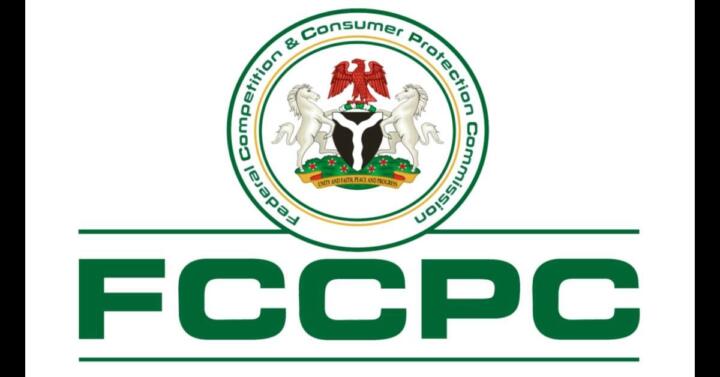Civil Society Organisations (CSOs) across Nigeria have called on telecommunication companies (telcos) to comply fully with the regulatory framework established by the Federal Competition and Consumer Protection Commission (FCCPC) governing digital lending operations. The groups expressed deep concern over the increasing number of data privacy violations and unethical collaborations between some lending platforms and telcos, warning that non-compliance threatens consumer rights and national data integrity.
The call comes amid growing scrutiny of the activities of digital money lenders and their partnerships with mobile operators, which facilitate access to sensitive user information without proper authorization. The CSOs, which include the Centre for Transparency Advocacy (CTA), the Consumer Awareness Foundation (CAF), and the Digital Rights Network (DRN), stressed that telcos must align their operations with FCCPC’s Digital Lending Guidelines to ensure ethical financial inclusion and protect Nigerians from predatory lending practices.

In a joint communiqué issued in Abuja, the groups said the FCCPC’s guidelines were designed to restore sanity to Nigeria’s fast-growing digital lending space, which has been plagued by privacy breaches, high interest rates, and debt-shaming practices. According to the statement, telecommunications firms play a critical role in the ecosystem by providing the infrastructure that supports app-based lending. Therefore, they share a moral and legal responsibility to ensure that only licensed and compliant lenders operate on their networks.
The Executive Director of the Centre for Transparency Advocacy, Faith Nwadishi, noted that the enforcement of FCCPC’s digital lending rules would be incomplete without the cooperation of telecom operators. She said some unregistered digital lenders still operate through mobile networks to send unsolicited loan offers, access borrowers’ phone contacts, and share personal information with third parties in violation of the Nigeria Data Protection Act. “We urge all telecom companies to verify that digital lenders using their platforms have met FCCPC’s licensing and data compliance requirements,” she said. “Telcos cannot claim neutrality when their systems are being used to harm consumers.”
Similarly, the Consumer Awareness Foundation called on the Nigerian Communications Commission (NCC) to work more closely with the FCCPC to strengthen inter-agency collaboration. According to CAF’s Director of Advocacy, Samuel Adeyemi, both regulators must ensure that telecom firms do not provide APIs, SMS gateways, or other forms of data access to loan apps that are not duly registered with the FCCPC. He added that joint compliance audits and data protection monitoring would help curb the activities of rogue digital lenders.
The groups also emphasized the importance of transparency in the relationship between fintech lenders and telecom companies. They accused some telcos of enabling exploitative lending practices through bulk messaging and data analytics services sold to unlicensed loan apps. “Telecom operators are not passive participants in this issue,” Adeyemi said. “By providing access to consumers’ metadata, call logs, and contact information, some telcos have indirectly fueled harassment and privacy violations carried out by digital lenders.”
The FCCPC has, in recent months, intensified efforts to regulate digital lending platforms, mandating all operators to register under the Limited Interim Regulatory Framework and Guidelines for Digital Lending (LIRF). The commission has also published a list of approved digital lenders and warned against dealing with unlicensed operators. Executive Vice Chairman of the FCCPC, Babatunde Irukera, stated that the framework was developed to promote fair lending, safeguard consumers’ data, and prevent exploitative recovery tactics.
Despite these measures, the commission continues to receive complaints from consumers who have been victims of data breaches, illegal debt collection, and psychological harassment. Many of these violations, according to consumer rights advocates, occur because unregulated lenders still have indirect access to users’ information through telecom networks. “Telcos must be held accountable as gatekeepers of digital access,” Nwadishi reiterated. “They must enforce strict Know-Your-Customer (KYC) protocols and deny connectivity to illegal loan apps.”
On their part, telecom operators have argued that they operate within the bounds of the law and that data sharing is guided by existing agreements with financial partners. However, CSOs insist that these agreements must be reviewed to reflect evolving regulatory demands and prioritize consumer rights. They urged telcos to strengthen their internal compliance departments, implement data minimization policies, and publish transparency reports detailing how customer data is used by third-party service providers.
The organisations also called for public sensitisation campaigns to educate consumers about their rights under the FCCPC Act and the Data Protection Act. They suggested that telcos and regulators collaborate to develop mechanisms through which consumers can verify the legitimacy of loan apps before downloading or engaging with them.
Experts in digital finance believe that ensuring telcos’ compliance will play a decisive role in cleaning up Nigeria’s digital lending ecosystem. By enforcing FCCPC rules, telecom operators can help build trust in the financial technology sector, boost investor confidence, and advance the Central Bank of Nigeria’s cashless economy agenda.
The CSOs concluded by reiterating their readiness to work with regulators to monitor compliance and advocate for consumers’ digital rights. “Nigeria cannot afford a financial inclusion model that sacrifices data protection,” the statement read. “Telcos must take responsibility for their role in the digital lending chain and ensure that consumer protection remains at the heart of innovation.”
As the FCCPC intensifies enforcement, all eyes remain on telecom companies to demonstrate their commitment to transparency and consumer safety. Their compliance, stakeholders say, will determine whether Nigeria’s digital lending industry evolves into a trusted pillar of inclusive finance or continues to be marred by exploitation and abuse.
Support InfoStride News' Credible Journalism: Only credible journalism can guarantee a fair, accountable and transparent society, including democracy and government. It involves a lot of efforts and money. We need your support. Click here to Donate
